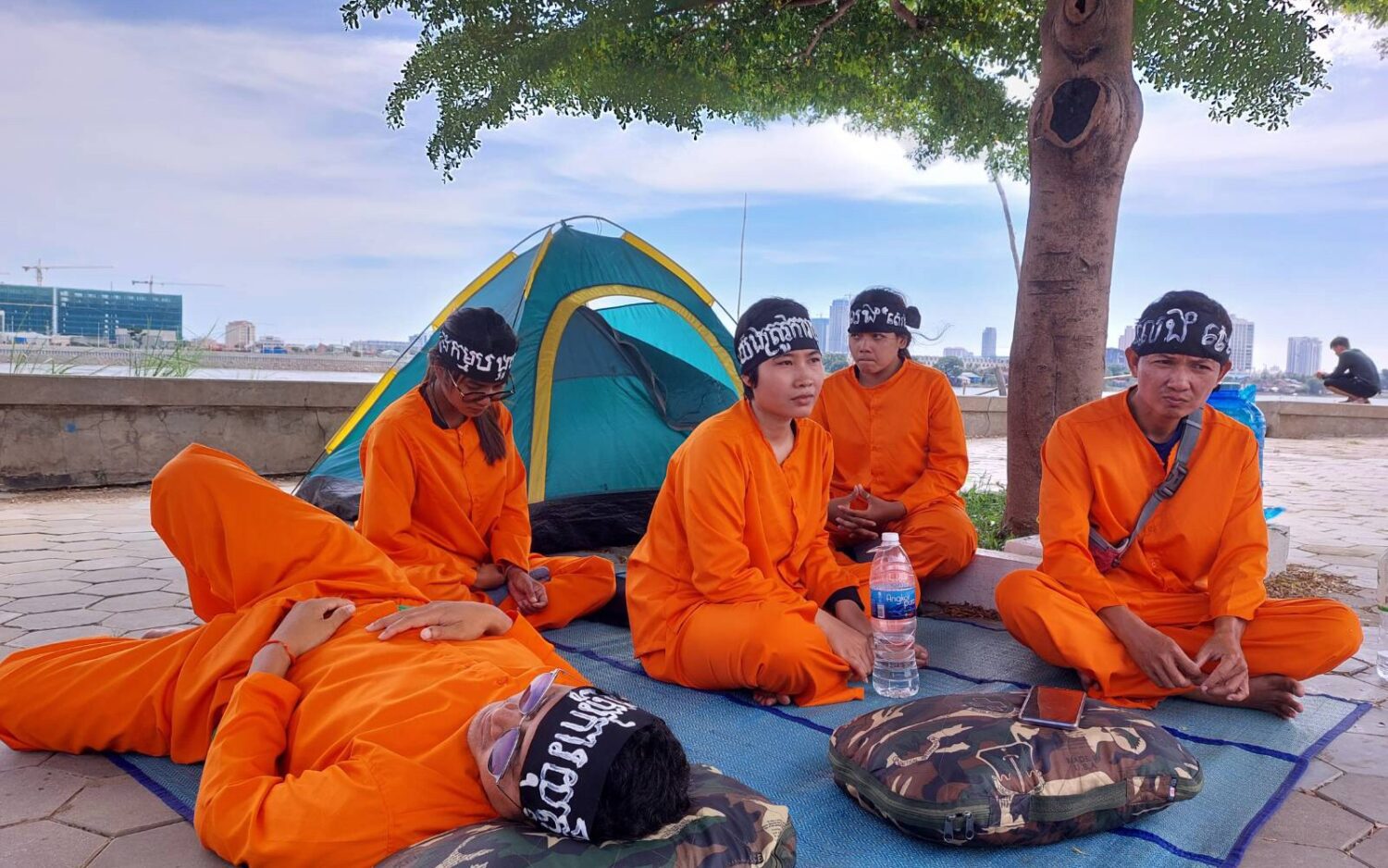A small group of hunger strikers was down to only one activist — fasting at home — due to security concerns and exhaustion by the time their protest action ended along with the Asean Summit.
Members of activist group Khmer Thavrak, which has advocated for a range of nationalist and social issues, began the hunger strike on November 7 in support of jailed opposition member Seng Chan Theary.
Chan Theary was convicted of plotting and incitement alongside 30 others in an opposition mass trial in June, and sentenced to six years in prison. She is a Cambodian-American lawyer, and the U.S. White House named her in a statement on Saturday as American President Joe Biden visited the country for the Asean Summit. The statement called for “the release of activists detained on politically motivated charges.”
Khmer Thavrak’s Chhoeun Daravy was the last participant left when the hunger strike ended on Sunday.
The group began their action with six participants in Preah Vihear, but was down to five by the time they moved to Phnom Penh’s Freedom Park on Wednesday.
Two were taken to hospital in the coming days, and on Saturday two more left the strike.
Hun Vannak, who left on Saturday, said he was exhausted, and he had heard that police were looking for him and colleague Svay Samnang at Samnang’s house. Samnang also left on Saturday. Vannak said police were acting on purported allegations from two women he claimed he didn’t know. It was still unclear what the alleged crime was and why police did not come to the public protest at Freedom Park.
“At the end there was only Daravy. Our group got overtaxed one by one. I was exhausted too,” Vannak said.
Phnom Penh Municipal Police spokesperson San Sokseyha declined to answer questions.
Daravy added that once she was alone, she felt unsafe and continued the hunger strike at home — but authorities had still stood watch outside.
“It’s overly restrictive by authorities against people when we are exercising our fundamental freedoms. But it’s the threat we all face,” she said.
Rights group Licadho’s spokesperson Am Sam Ath agreed that surveillance at home was too much.
“Protecting public order is one thing, but monitoring them at home is too much of a threat and it’s intimidation. They shouldn’t do this. This is a suppression of the people,” Sam Ath said.













